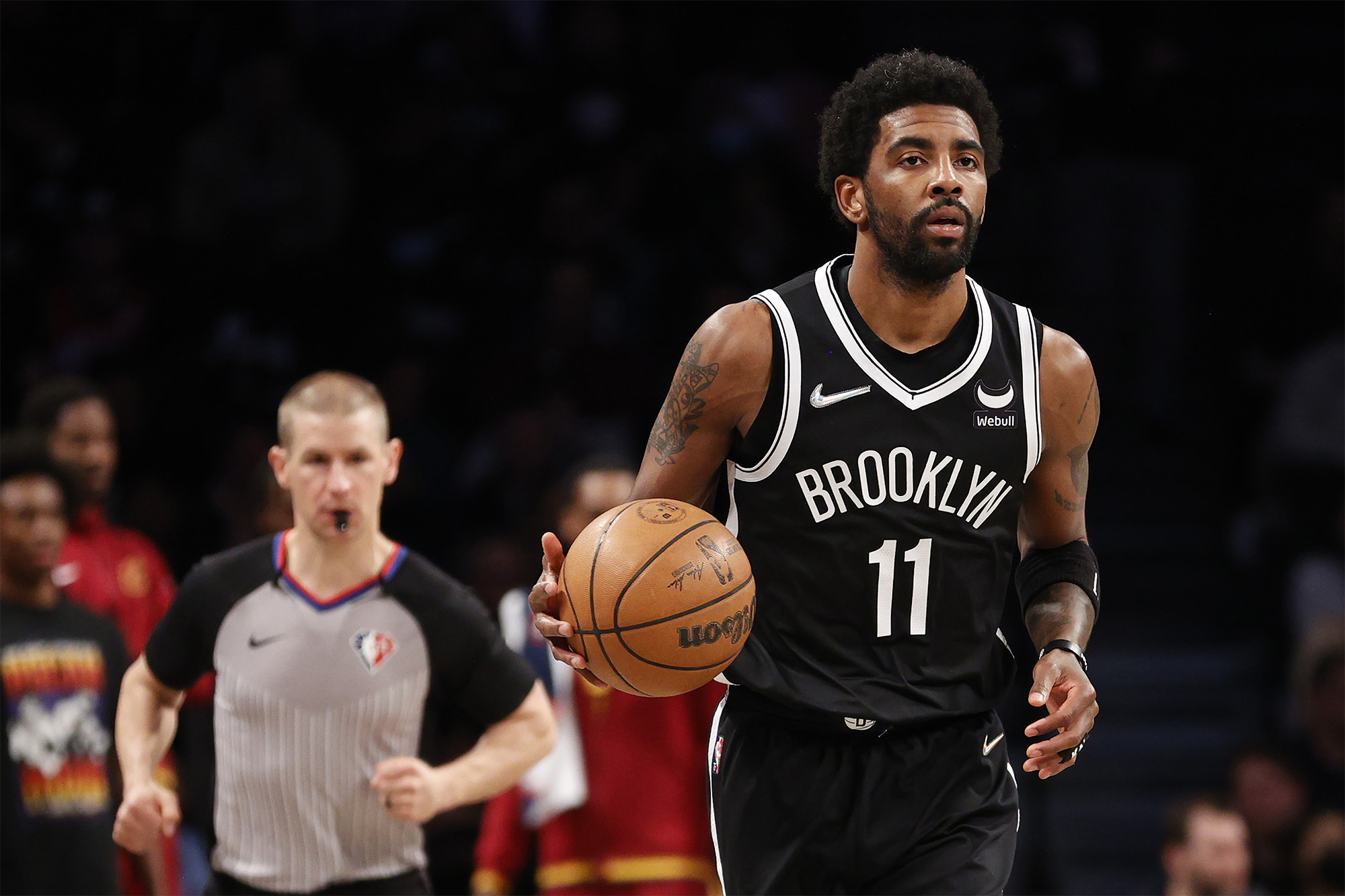The highly anticipated union of NBA superstars Kevin Durant, Kyrie Irving, and James Harden in Brooklyn promised a championship dynasty. It was a vision that captured the league`s imagination, a superteam poised to rewrite history. Yet, after a mere two seasons, this ambitious project unraveled, delivering just one playoff series victory before its dissolution. Recent public reflections from Durant and former coach Steve Nash offered initial insights, attributing the collapse to a cocktail of injuries and external distractions. Now, Kyrie Irving, in a candid Twitch livestream, has presented his own detailed — and notably distinct — perspective, shedding light on the often-murky intersection of player loyalty, team management, and the business of professional basketball.
The Genesis of a `Package Deal`
Irving’s decision to join the Brooklyn Nets in the summer of 2019 was, as he recounts, intrinsically tied to his bond with Kevin Durant. This wasn`t merely a tactical career move; it was a pact solidified years prior, a testament to a deep personal connection formed during the 2016 Summer Olympics. Durant had just suffered a devastating Achilles tear in the Finals, a career-altering injury that would sideline him for an entire season. For many, this would be a clear signal to pivot. For Irving, it was a moment to reaffirm commitment.
“K.D. had just tore his Achilles in the Finals, me and him were planning on doing things, to go to Brooklyn,” Irving explained. “I don`t know any of you guys that would still stick it out with one of your friends that tears their Achilles and wait a year and a half for them to get healthy. But I`m that dude, I`m not about to leave K.D. out there after a torn Achilles and be like `Nah f*** that, we`re not going to play together anymore.`” This sentiment underscores a profound loyalty, a characteristic often romanticized but rarely put to such a severe test in the cutthroat world of the NBA.
The Unspoken Disconnect: Front Office and Coaching Dynamics
While loyalty steered Irving towards Brooklyn, his account reveals a striking lack of pre-commitment engagement from the organization itself. A seasoned professional entering a significant career phase might expect detailed conversations with key decision-makers. Irving, however, paints a different picture, one marked by an astonishing void in communication.
“I didn`t meet with the GM one time, the assistant GM one time — when I look back at that decision, I`m like, `Man I should`ve taken more time to delegate and figure out what`s best for me,`” Irving admitted. This absence of critical due diligence, from both player and perhaps organization, set an unusual precedent. It suggests a transactional approach rather than a collaborative partnership, a potential red flag for a volatile and high-profile team. Irving further elaborated on his perception:
- He felt current coach at the time, Kenny Atkinson, “wasn`t f***ing with me like that.”
- His belief was that the Nets “wanted K.D., and that`s my vantage point.”
Such a perspective, whether entirely accurate or a product of an individual`s experience, points to a fundamental misalignment. If a superstar feels less wanted than his counterpart, it can sow seeds of discord, irrespective of on-court talent. The irony here is palpable: a multi-million dollar venture, built on the assumption of mutual desire, seemingly lacked the foundational conversations that might preface a much smaller business partnership.
Contrasting Narratives and the Weight of Immaturity
Irving`s narrative sharply contrasts with Durant`s emphasis on injuries and distractions, or Nash`s lament about being unable to truly coach amidst the chaos. While these factors undoubtedly played a role, Irving`s revelations suggest a deeper, systemic issue: a lack of cohesive understanding and buy-in from the outset. It wasn`t just about what happened on the court or in the media; it was about the very fabric of the team`s construction.
Reflecting on his own role, Irving displayed a surprising degree of self-awareness regarding his mindset at the time. “I was very immature at that point, I`m 27, 28, leaving Boston, feeling good about going back home, I`m hyped,” he confessed. This candid admission of immaturity is a rare commodity in professional sports, offering a glimpse into the personal growth that often accompanies public scrutiny and high-stakes failure. His hindsight provides a crucial lesson: “get to know the front office before you make any decision.” A fundamental business principle, perhaps learned the hard way.
The turbulent relationship culminated in Irving’s controversial suspension in 2021 due to his stance on the COVID-19 vaccine. He revealed a desperate plea to the Nets: “I even told the Nets to release me, I said, `Yo, could you please just release me` — and obviously the money situation … they weren`t just going to let me rock out and go anywhere.`” This desire for an exit, long before the ultimate trade, underscores the depth of his disillusionment. Ultimately, he was traded to the Dallas Mavericks, marking the final chapter of his Brooklyn experiment.
Beyond Brooklyn: Lessons for the League
The Brooklyn Nets saga, as recounted by Kyrie Irving, serves as a compelling case study in the complexities of modern NBA team building. It transcends simple narratives of wins and losses, delving into the critical importance of human dynamics, effective communication, and robust organizational structures. While the “Big Three” era in Brooklyn will forever remain one of the NBA`s great “What Ifs,” Irving`s recent honesty offers a valuable takeaway for both players and franchises. Loyalty, while noble, must be reciprocated with transparent engagement. And perhaps, even for the most gifted athletes, a little bit of preliminary due diligence goes a very long way in the grand, sometimes chaotic, theater of professional sports.

